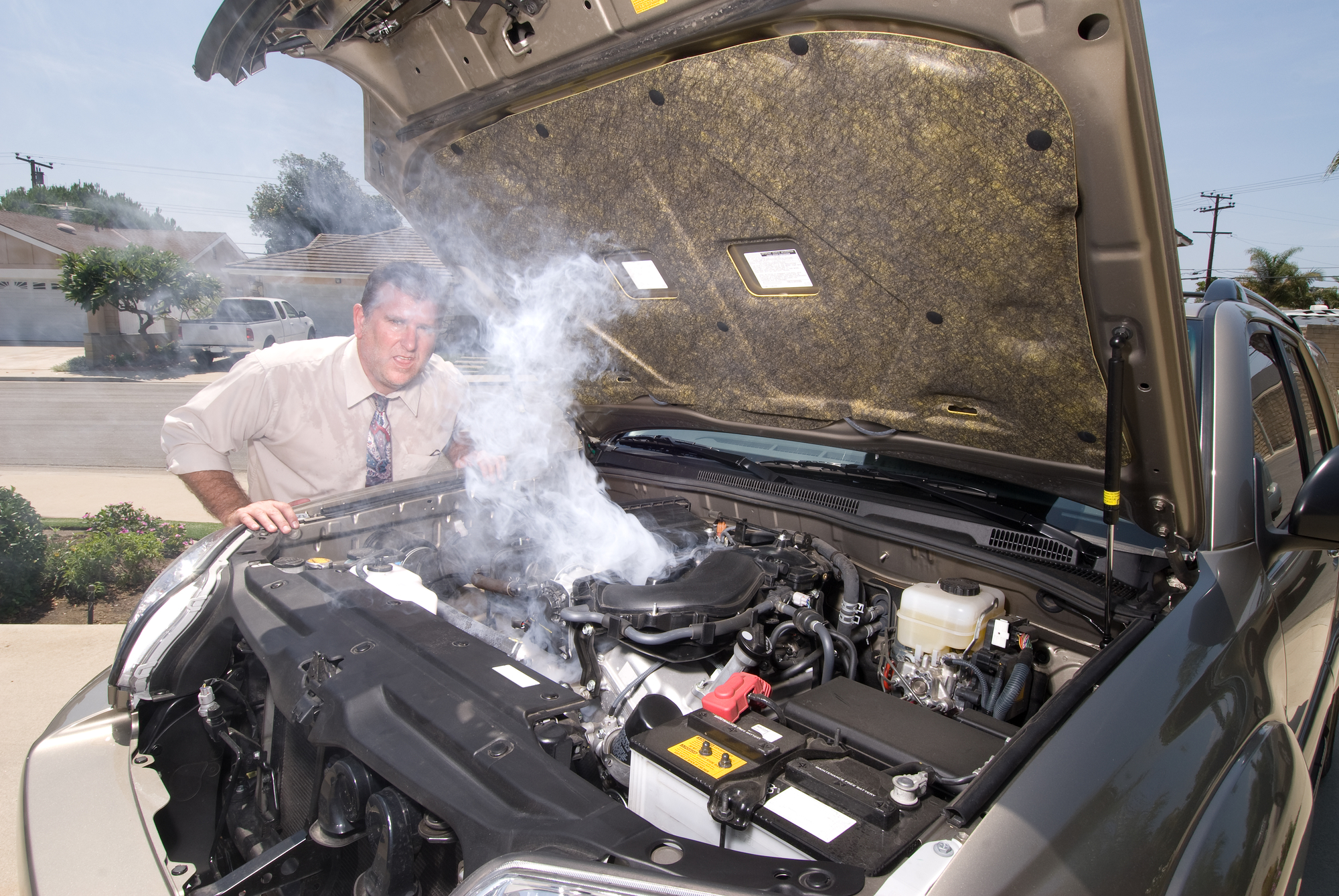Even though there are several things that can cause your car to overheat, the main reason is an issue with the cooling system that’s preventing the transportation, absorption, or release of heat. Modern vehicles are less likely to experience overheating problems; however, it can still happen. Here are a few of the most common causes that will answer the question “Why is my car overheating?”
The Cooling System is Leaking
A leak in the cooling system (head gasket, water pump, radiator, thermostat housing, etc.), will cause the engine not to cool properly. If you suspect there’s a leak in the cooling system, have it looked at by an experienced mechanic.
Coolant Problems
Coolant, a 50/50 mixture of antifreeze and water, keeps engines cool during the hot summer months and helps prevent freezing during cold winter months. Problems with coolant aren’t just related to leaking in the cooling system – it can be due to evaporation. In addition, if the water/antifreeze mixture isn’t circulating accurately, the engine will start overheating. Also, if you use the wrong coolant or the coolant-to-water percentage is off, the engine will have problems staying cool. If the coolant mixture is off, you’ll need to have the system flushed, followed by adding the appropriate mixture.
Radiator Issues
Clogs, leaks, fan problems with the radiator, etc., can cause the car to overheat because the heat won’t be able to escape properly. An experienced auto technician can diagnose what’s wrong with the radiator and how to address the problem.
Blocked/Damaged Hoses
Eventually, the hoses that circulate coolant can become detached or blocked. Even a partially blocked hose can keep the right amount of coolant from circulating. Checking out hoses on a regular basis is important and is often done during a vehicle inspection or routine maintenance. It couldn’t hurt to ask the mechanic to check them out as well during regular maintenance checks.
Defective Water Pump
The water pump helps “pump” and push coolant throughout the cooling system. Problems with the water pump will definitely cause the engine to overheat. Water pump problems include impeller vane erosion, leaks, and pump shaft shifts.
What Do I Do if My Car Overheats?
Here are a few steps you can take if your car overheats that will help cool it down. Always remember safety comes first.
- Pull off the road and carefully open the hood. You want to be careful when opening the hood, and protect yourself from any hot steam. Opening the hood helps release excess heat and allows air to circulate throughout the hot engine.
- Turn off the air conditioning and, with the windows down, blast the heat. While cranking up the heat may seem counterproductive, it can actually pull the heat away from the engine bay, helping the car cool down.
- Put your car in the “park” or “neutral” position and rev the engine. This will make the water pump and fan work faster, pulling additional air and water through the radiator. Doing so increases circulation, which cools down the engine.
These are only temporary solutions that may make it possible to drive the vehicle a short distance.
NOTE: Under no circumstances should you try to take off the radiator cap when the engine is hot. When a car overheats, it puts the radiator under tremendous pressure, resulting in hot sprays of coolant if you try to remove the radiator cap.
The information listed here should answer the question, “Why is my car overheating?” If your car is showing signs of overheating, give us a call today. We’ll be happy to assess the problem and provide the necessary service and repairs that will get you back on the road safely. Contact us today.






